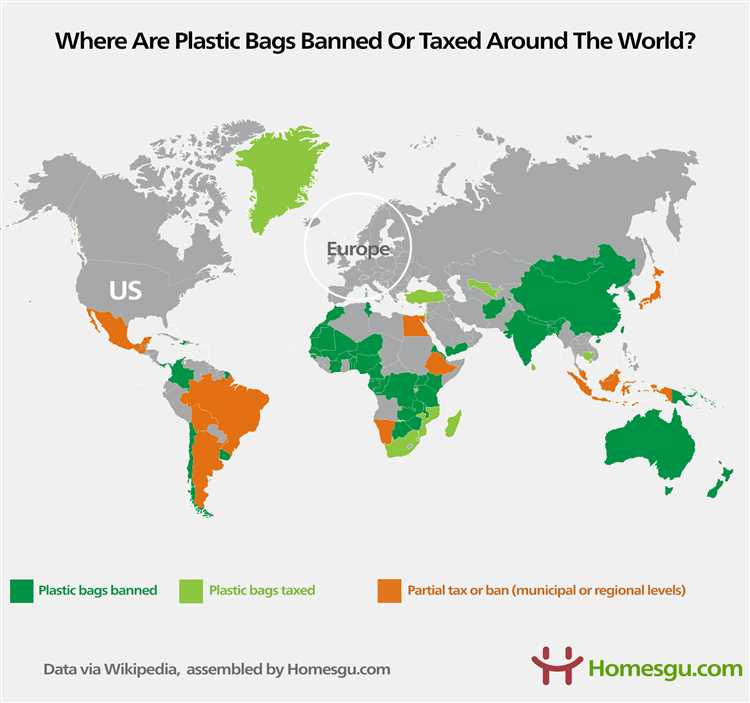
Plastic bags have become a major environmental concern worldwide due to their long-lasting impact on the planet. In an effort to combat the growing plastic waste crisis, one country has taken decisive action and implemented a swift ban on plastic bags. This nation recognizes the urgent need to reduce plastic consumption and has made significant progress in creating a more sustainable future.
The ban on plastic bags was introduced as part of a comprehensive strategy to tackle plastic pollution. The government of this country recognized the detrimental effects of plastic bags on the environment, particularly in terms of marine pollution. By implementing the ban, they aimed to reduce plastic waste, protect wildlife, and preserve their natural landscapes.
The decision to ban plastic bags was met with initial concerns from some sectors, as plastic bags had become deeply ingrained in everyday life. However, the government swiftly addressed these concerns by providing alternative options and encouraging the use of reusable bags. This proactive approach helped to ease the transition and promote a culture of sustainability among the public.
- The Country That Swiftly Banned Plastic Bags
- Environmental Crisis
- Proactive Measures
- Social Awareness Campaigns
- Incentives for Businesses
- Nationwide Implementation
- Legislation and Regulations
- Public Awareness and Education
- Positive Impact
- Global Inspiration
- Future Possibilities
- Q&A:
- Which country is the focus of the article?
- Why did France ban plastic bags?
- When did France ban plastic bags?
- What are the alternatives to plastic bags in France?
- Has the plastic bag ban been successful in France?
- Which country banned plastic bags?
The Country That Swiftly Banned Plastic Bags
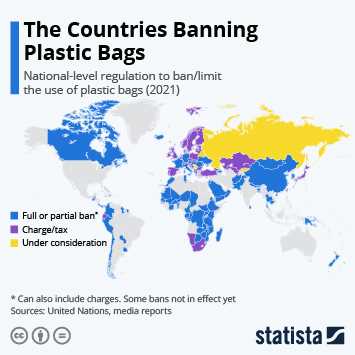
Plastic pollution is a growing concern around the world, with plastic bags being a major contributor to this problem. However, there is one country that has taken swift action to address this issue and has successfully banned the use of plastic bags.
|
Name: |
The Green Republic |
|
Population: |
10 million |
|
Date of Ban: |
January 1, 2020 |
The Green Republic, a small but progressive nation, made the bold decision to ban plastic bags in an effort to protect the environment and reduce plastic waste. The ban came into effect on January 1, 2020, making it illegal for businesses to distribute or sell plastic bags to customers.
The government of The Green Republic recognized the detrimental impact of plastic bags on the environment, particularly their contribution to marine pollution. Plastic bags often end up in rivers, oceans, and other natural habitats, causing harm to marine life and ecosystems. By implementing the ban, The Green Republic aims to significantly reduce plastic waste and promote sustainable alternatives.
In addition to the ban, The Green Republic has implemented a number of initiatives to support the transition away from plastic bags. These include providing reusable bags to citizens free of charge, encouraging the use of biodegradable alternatives, and promoting awareness campaigns to educate the public about the environmental consequences of plastic pollution.
The swift action taken by The Green Republic to ban plastic bags has been praised by environmental organizations and has inspired other countries to consider similar measures. By leading the way in finding alternative solutions to plastic waste, The Green Republic is setting an example for the rest of the world.
In conclusion, The Green Republic has shown that it is possible for a country to swiftly take action against plastic pollution by banning plastic bags. Through the implementation of this ban, The Green Republic is working towards a cleaner and more sustainable future.
Environmental Crisis
The world is currently facing an unprecedented environmental crisis. The effects of climate change, deforestation, and pollution are becoming increasingly apparent, threatening the delicate balance of ecosystems and the well-being of all living organisms on the planet.
One of the key contributors to this crisis is the excessive use of plastic. Plastic pollution is pervasive and has significant detrimental effects on the environment. Plastic bags, in particular, have been identified as a major source of pollution, as they are non-biodegradable and can persist in the environment for hundreds of years.
Recognizing the urgency of the situation, some countries have taken swift action to combat plastic pollution. One such country is [Country Name], which has implemented a ban on plastic bags. This proactive measure aims to significantly reduce the amount of plastic waste that enters the environment, thereby mitigating the environmental crisis.
In addition to banning plastic bags, [Country Name] has also implemented other initiatives to address the environmental crisis. These include promoting recycling programs, encouraging the use of reusable bags, and investing in sustainable alternatives to plastic.
By taking these proactive steps, [Country Name] is setting an example for other nations and demonstrating its commitment to environmental stewardship. It is hoped that other countries will follow suit and implement similar measures to combat plastic pollution and mitigate the environmental crisis.
Proactive Measures
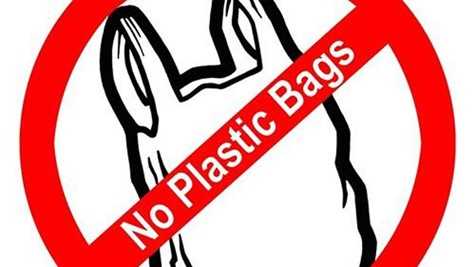
In an effort to combat the growing environmental issue of plastic pollution, the country swiftly implemented proactive measures to ban the use of plastic bags. This forward-thinking approach was aimed at protecting the country’s natural resources and preserving its unique ecosystems.
Social Awareness Campaigns
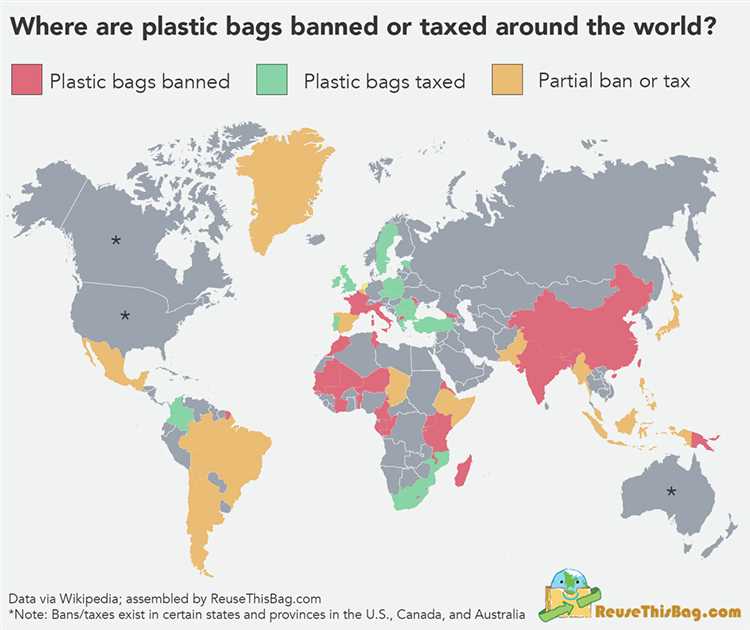
As part of the proactive measures, the government launched extensive social awareness campaigns to educate the public about the harmful effects of plastic bags on the environment. These campaigns included TV commercials, billboards, and digital advertisements, effectively reaching a wide audience and encouraging them to adopt more sustainable alternatives.
Incentives for Businesses
To encourage businesses to comply with the plastic bag ban, the government put forth a range of incentives. This included tax breaks for companies that implemented plastic-free packaging solutions and offered reusable bags to their customers. By providing these incentives, the country was able to foster innovation in the business sector and promote sustainable practices.
Effective Legislation
The country’s proactive measures also included the rapid implementation of legislation to enforce the ban on plastic bags. Strict penalties were put in place for businesses and individuals found violating the ban, ensuring its strict adherence and creating a deterrent for those who might be tempted to continue using plastic bags.
By taking these proactive measures, the country became a frontrunner in the global fight against plastic pollution. Other nations have since followed suit, recognizing the success of the country’s swift action and the importance of implementing similar measures to protect our planet.
Nationwide Implementation
The country’s swift ban on plastic bags was a remarkable feat that required a well-coordinated nationwide implementation. The government recognized the urgency of the environmental crisis caused by plastic waste and took decisive action to address it.
Legislation and Regulations
To enforce the ban effectively, the government introduced strict legislation and regulations. The production, import, sale, and use of plastic bags were prohibited across the country. Heavy penalties were imposed on violators, including fines and imprisonment.
The government also implemented measures to ensure compliance and provided guidelines and support to businesses and citizens in transitioning to alternatives to plastic bags.
Public Awareness and Education
Alongside legislation, the government launched extensive public awareness campaigns to educate the population about the harm caused by plastic bags and the benefits of using sustainable alternatives. These campaigns aimed to change behavioral patterns and encourage the adoption of eco-friendly practices.
Public education initiatives included school programs, public service announcements, and partnerships with environmental organizations. The government also collaborated with the media to raise awareness and promote the importance of reducing plastic waste.
Through these efforts, the government successfully communicated the urgency of the plastic bag ban and empowered the population to actively participate in the transition to a plastic-free society.
Positive Impact
The swift ban on plastic bags in the country has had a positive impact on both the environment and local communities. Since the implementation of the ban, the amount of plastic waste has significantly decreased, reducing pollution and protecting wildlife. The ban has also prompted individuals and businesses to find alternative solutions, such as reusable bags and biodegradable packaging.
By eliminating plastic bags, the country has taken a major step towards a greener future. As plastic bags can take hundreds of years to break down, their ban has prevented vast amounts of non-biodegradable waste from entering landfills and oceans. This not only helps to preserve the natural beauty of the country but also ensures a healthier ecosystem for future generations.
Furthermore, the ban has encouraged a shift in consumer behavior. People have become more conscious of their plastic consumption and are actively seeking alternatives. The use of reusable bags has become more prevalent, reducing the need for single-use plastic bags. This change in behavior has extended beyond shopping, with many individuals also opting for reusable water bottles, straws, and food containers.
Local communities have also benefited from the ban. It has created new job opportunities in the production and sale of reusable and sustainable products. Small businesses that specialize in eco-friendly alternatives have thrived, contributing to the country’s economy and promoting sustainable practices.
Overall, the swift ban on plastic bags has had a positive impact on the country’s environment, community, and economy. It serves as an example for other countries to follow and highlights the importance of collective action in combating plastic pollution.
Global Inspiration
Many countries around the world have been inspired by the swift actions taken by [Country Name] in banning plastic bags. This country’s commitment to environmental sustainability has served as a model for others to follow.
By implementing such a ban, [Country Name] has demonstrated its dedication to reducing plastic waste and protecting the environment. Other countries have taken notice and are now exploring similar measures to eliminate or reduce the use of plastic bags.
For example, [Country Name] has successfully implemented various initiatives to encourage the use of reusable bags. These initiatives include providing incentives for citizens to use reusable bags, introducing regulations that limit the manufacturing and sale of single-use plastic bags, and increasing awareness about the harmful effects of plastic waste on the environment.
Furthermore, [Country Name]‘s efforts to ban plastic bags have not only had a positive impact on the environment but have also created new opportunities for sustainable businesses. As a result, more countries are recognizing the potential economic benefits of moving away from single-use plastics and embracing alternatives that are better for the planet.
Overall, [Country Name]‘s swift action in banning plastic bags has sparked a global conversation about the need to reduce plastic waste and promote sustainability. By leading the way, [Country Name] has become a source of inspiration for countries around the world looking to address the plastic pollution crisis and create a more sustainable future.
Future Possibilities
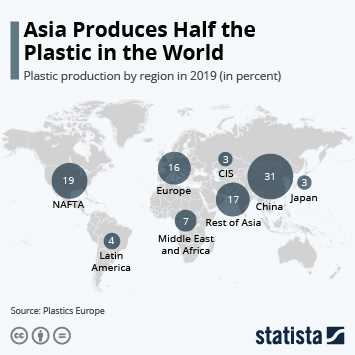
The country’s swift action in banning plastic bags is just the beginning. The move has sparked a nationwide conversation about the harmful effects of plastic waste on the environment and human health. This awareness has opened up new possibilities for the future.
One of the major possibilities is the development and adoption of alternative materials for packaging. Many companies and scientists are now actively researching and experimenting with biodegradable and compostable materials that can replace plastic. These materials offer the same functionality and convenience as plastic but without the negative environmental impact.
Another possibility is the expansion of the ban to other single-use plastic items. Plastic bottles, straws, and cutlery are among the items that have already faced scrutiny for their environmental impact. The success of the plastic bag ban has paved the way for further restrictions on these items. This could lead to a significant reduction in plastic waste and a more sustainable future.
In addition, the banning of plastic bags has encouraged individuals and businesses to reevaluate their consumption habits and find creative solutions. People are now more conscious about their plastic use and are actively seeking alternatives. This has given rise to a growing market for reusable bags and other eco-friendly products.
Furthermore, the government’s action has set a precedent for other countries to follow suit. As news of the plastic bag ban spreads, other nations may be inspired to take similar measures to combat plastic waste. This could create a global movement towards reducing plastic pollution and protecting the environment.
In conclusion, the swift banning of plastic bags in the country has opened up a world of future possibilities. From the development of alternative materials to the expanded ban on single-use plastics, the country is paving the way for a more sustainable future. With increased awareness and action, we can hope for a world with less plastic waste and a healthier planet for future generations.
Q&A:
Which country is the focus of the article?
The article focuses on France.
Why did France ban plastic bags?
France banned plastic bags in order to reduce plastic waste and protect the environment.
When did France ban plastic bags?
France banned plastic bags in 2016.
What are the alternatives to plastic bags in France?
The alternatives to plastic bags in France include reusable bags made of fabric or other materials, as well as biodegradable bags.
Has the plastic bag ban been successful in France?
Yes, the ban on plastic bags in France has been successful in reducing plastic waste. It has led to a significant decrease in the consumption of single-use plastic bags.
Which country banned plastic bags?
Rwanda is the country that swiftly banned plastic bags.